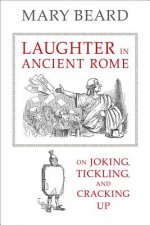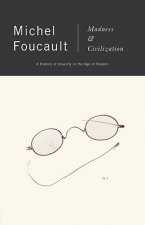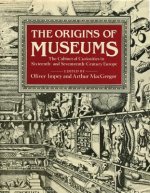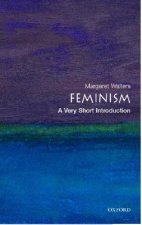
Kód: 04742606
Cultures of Abortion in Weimar Germany
Autor Cornelie Usborne
"...a richly textured analysis of medical and lay abortion discourses and practices, artistic representations of the procedure, and of women's, particularly lower-class women's, own perceptions and experiences of abortion. Skilful ... celý popis
- Jazyk:
 Angličtina
Angličtina - Vazba: Brožovaná
- Počet stran: 296
Nakladatelství: Berghahn Books, 2011
- Více informací o knize

Mohlo by se vám také líbit
-

Triangulation
5999 Kč -

Companion to Feminist Art
5624 Kč
Darujte tuto knihu ještě dnes
- Objednejte knihu a zvolte Zaslat jako dárek.
- Obratem obdržíte darovací poukaz na knihu, který můžete ihned předat obdarovanému.
- Knihu zašleme na adresu obdarovaného, o nic se nestaráte.
Více informací o knize Cultures of Abortion in Weimar Germany
Nákupem získáte 114 bodů
 Anotace knihy
Anotace knihy
"...a richly textured analysis of medical and lay abortion discourses and practices, artistic representations of the procedure, and of women's, particularly lower-class women's, own perceptions and experiences of abortion. Skilfully using an impressive variety of sources, Usborne provides a meticulous, insightful, and lively study that questions some of the continuing assumptions about the Weimar Republic.and provides an exciting example of how to approach the history of the body." * Medical History "Based on a careful reading of court files, this investigation reveals a rich and often ambiguous repertoire of perceptions and descriptions...Cultures of Abortion is not only the seminal study on one of the most contested and high-profile issues in Weimar politics, it is also a superb demonstration of how 'gender' can be used to complicate well established historical narratives." * German History "With inspiration from Alltagsgeschichte(history of the everyday) and body history, Usborne presents a fascinating collection of stories about how abortion was practiced in both rural and urban, medicalized and folk-healing contexts...[It] performs several valuable services. It brings us far closer to the actual experiences of Weimar women who underwent abortions than we have ever been before, it usefully questions our tendency to respect complex medical procedures over simpler but often just as effective techniques, and it provides considerable evidence that the practice and social acceptance of abortion were far more widespread in this period than previously appreciated." * Bulletin of the History of Medicine "This revealing study teases out the various ways that official discourses often clashed with womena's everyday experiences and attitudes towards abortion...Overall, this monograph is an important addition for any scholar interested in abortion, the body, medical discourses, gender and modern Germany." * H-Soz-u-Kult "Usborne provides a vivid picture not only of...individuals, but of the communities that they lived in and the social networks that facilitated their relationships and contacts. Many of her conclusions are fascinating...[a] compelling book." * German Studies Review "The book includes introductory and concluding chapters that effectively place the story in the historiography of modern Germany and of modern abortion and, more broadly, the female body. Usborne's monograph contains much of worth and interest for scholars and students of modern Germany, gender relations, sexuality, medicine, and, certainly, abortion." * American Historical Review Abortion in the Weimar Republic is a compelling subject since it provoked public debates and campaigns of an intensity rarely matched elsewhere. It proved so explosive because populationist, ecclesiastical and political concerns were heightened by cultural anxieties of a modernity in crisis. Based on an exceptionally rich source material (e.g., criminal court cases, doctors' case books, personal diaries, feature films, plays and literary works), this study explores different attitudes and experiences of those women who sought to terminate an unwanted pregnancy and those who helped or hindered them. It analyzes the dichotomy between medical theory and practice, and questions common assumptions, i.e. that abortion was "a necessary evil," which needed strict regulation and medical control; or that all back-street abortions were dangerous and bad. Above all, the book reveals women's own voices, frequently contradictory and ambiguous: having internalized medical ideas they often also adhered to older notions of reproduction which opposed scientific approaches.
 Parametry knihy
Parametry knihy
Zařazení knihy Knihy v angličtině Humanities History History: specific events & topics
1142 Kč
- Plný název: Cultures of Abortion in Weimar Germany
- Autor: Cornelie Usborne
- Jazyk:
 Angličtina
Angličtina - Vazba: Brožovaná
- Počet stran: 296
- EAN: 9780857451668
- ISBN: 0857451669
- ID: 04742606
- Nakladatelství: Berghahn Books
- Hmotnost: 410 g
- Rozměry: 229 × 154 × 16 mm
- Datum vydání: 01. September 2011
Oblíbené z jiného soudku
-

Man's Search for Meaning
179 Kč -

Women, Race & Class
276 Kč -

Pianist
279 Kč -

Out Of Place
303 Kč -

Little History of Economics
350 Kč -

Laughter in Ancient Rome
501 Kč -

Civilization and Capitalism, 15th-18th Century
1611 Kč -

Armies of Medieval Burgundy 1364-1477
395 Kč -

Night
249 Kč -

Society of the Spectacle
291 Kč -

Imperialism: The Highest Stage of Capitalism
196 Kč -

Man's Search For Meaning
410 Kč -

Homo Deus
358 Kč -

Ordinary Men
306 Kč -

Black Earth
358 Kč -

The Complete MAUS
462 Kč -

The Rape of Nanking
396 Kč -

Madness and Civilization
419 Kč -

Conquerors
306 Kč -

Stoned
276 Kč -

Twelve Years a Slave
90 Kč -

At Home
303 Kč -

Origins of Museums
1370 Kč -

Measure of a Man
373 Kč -

Delirious New York
679 Kč -

Eichmann in Jerusalem
306 Kč -

Mein Kampf - The Ford Translation
985 Kč -

Bloodlands
358 Kč -

Guns, Germs and Steel
358 Kč -

Cold War Submarines
865 Kč -

Fall of Public Man
410 Kč -

Che Guevara
551 Kč -

Dancing In The Streets
303 Kč -

Fix the Pumps
350 Kč -

Blue
954 Kč -

Revolutionary Yiddishland
336 Kč -

Commandant Of Auschwitz
303 Kč -

Jewish State
277 Kč -

Eichmann in Jerusalem
357 Kč -

Reflections on the Revolution in France
249 Kč -

Wall Street and the Bolshevik Revolution
357 Kč -

Corgi Toys
407 Kč -

Night
276 Kč -

Wreck of the Titan
306 Kč -

McMafia
303 Kč -

Intimate History of Humanity
357 Kč -

Feminism: A Very Short Introduction
249 Kč -

White Gold
357 Kč -

Twelve Who Ruled
600 Kč
Osobní odběr Praha, Brno a 12903 dalších
Copyright ©2008-24 nejlevnejsi-knihy.cz Všechna práva vyhrazenaSoukromíCookies



 Vrácení do měsíce
Vrácení do měsíce 571 999 099 (8-15.30h)
571 999 099 (8-15.30h)